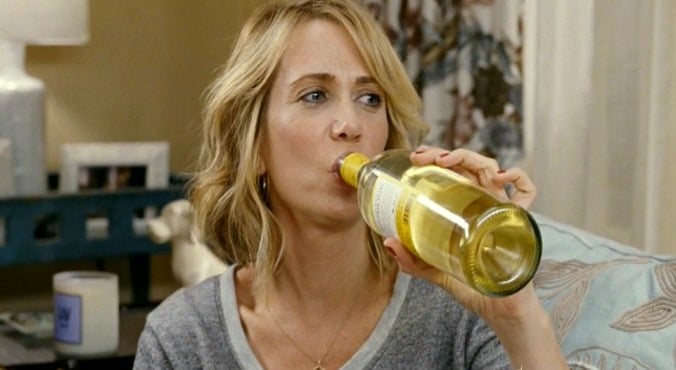
Image via Universal Pictures.
There are two things in life that I know to be true. One is that I love wine. The second is that the day after inducing, well, a few too many vinos, I become a headache-y mess. But I have some news which has brought tears of joy to my eyes – hangover-free wine is here. Zero. Hangover. Wine.
Do I have your attention now? Thought so.
RELATED:When ‘just one glass’ of wine becomes a problem
Scientists at the University of Illinois have discovered that toxic byproducts in wine are responsible for your head-pounding hangover. The best bit? They’ve now figured out how to remove them. Clever things.
“Fermented foods – such as beer, wine, and bread – are made with polyploid strains of yeast, which means they contain multiple copies of genes in the genome,” explained Associate Professor of microbial genomics at the University of Illinois, Yong-Su Jin.
Check out some of our favourite, healthy cocktail recipes (post continues after gallery)
Healthy Cocktails
“Until now, it’s been very difficult to do genetic engineering in polyploid strains because if you altered a gene in one copy of the genome, an unaltered copy would correct the one that had been changed.”
If, like us, that science-talk didn’t make a whole lot of sense to you, it basically translates to: scientists are using a “genome knife” which allows them to cut the hangover-causing compounds out of the DNA of yeast used to produce the wine.